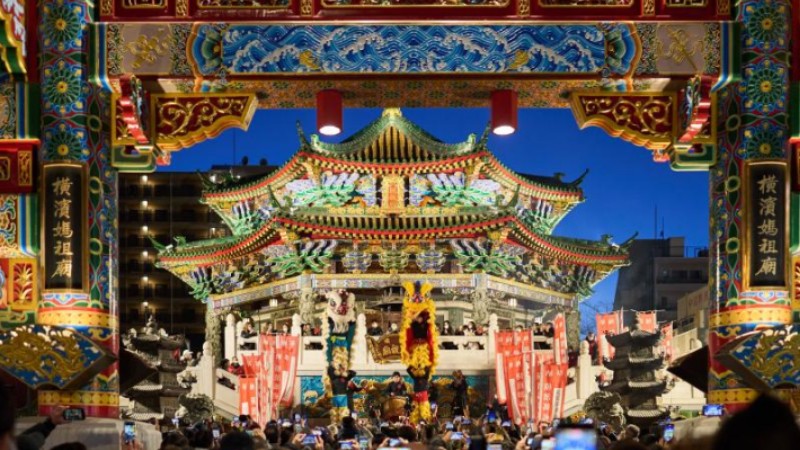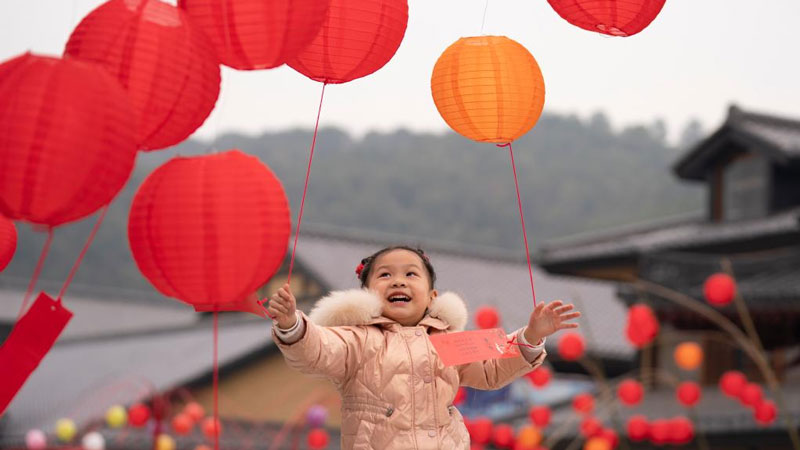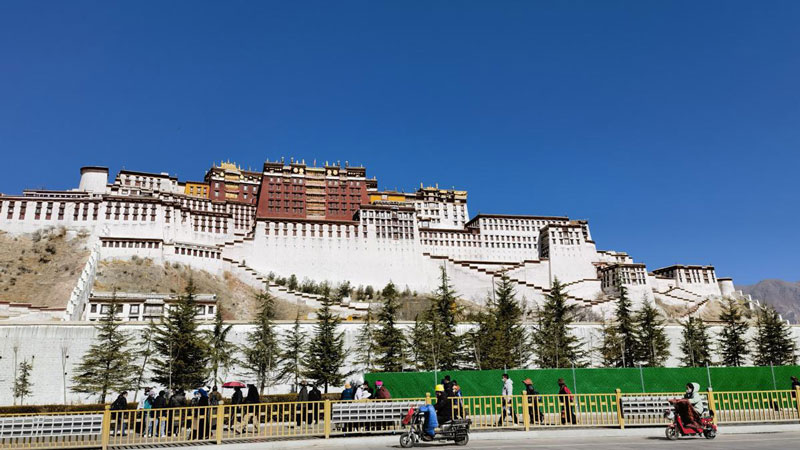Intangible cultural heritage boosts rural vitalization in village in China's Henan
In recent years, Qingliangsi village in Baofeng county, central China’s Henan Province, has embarked on a journey of rural vitalization through its Ru porcelain firing technique, which was listed as a national intangible cultural heritage in 2011.
The village is home to the site of the ancient official Ru porcelain kiln, which was among the five most famous kilns during the Northern Song Dynasty (960-1127).

Wang Junzi, a national-level inheritor of Ru porcelain firing skills, teaches his disciples how to trim a ceramic body in Qingliangsi village, Baofeng county of central China's Henan Province, on June 3, 2016. (Photo/Xinhua)
Since 2019, the village has promoted a business model that integrates its Party branch, the Ru porcelain cooperative and association, workshops (studios) and livestreaming e-commerce, and established an e-commerce office. The cooperative counts nearby Ru porcelain companies and workshops among its members, while the e-commerce office has hired livestreamers to promote sales of porcelain products.
Shang Liuqun, a villager who has been making Ru porcelain wares for many years, said he encountered a technical problem during the firing of a kind of porcelain ware in the past, but the problem was solved after he joined the cooperative under the guidance of Wang Junzi, a national-level inheritor of Ru porcelain firing skills.
Wang Guoqi, a provincial-level inheritor of Ru porcelain firing skills in the village, said his high-quality products couldn’t be sold at good prices in the past due to his lack of marketing ability, especially online marketing. “After joining the cooperative, I can focus on training apprentices, improving skills and developing products. I don’t have to worry about sales, and the prices of my products have risen,” he said.
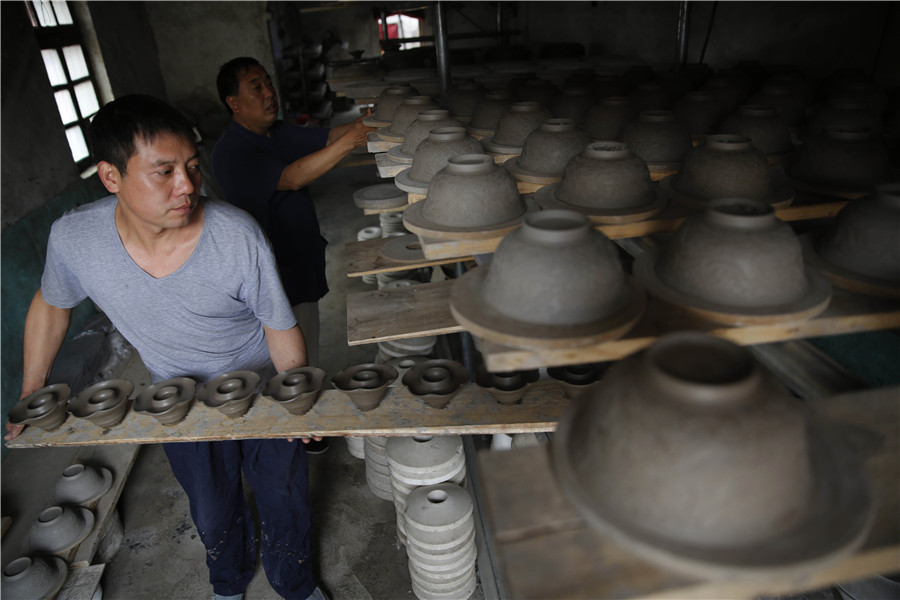
Wang Junzi and his disciple place the ceramic bodies on a shelf to dry in Qingliangsi village, Baofeng county of central China's Henan Province, on June 3, 2016. (Photo/Xinhua)
Currently, Qingliangsi village has 45 inheritors of Ru porcelain firing skills at national, provincial, municipal and county levels, and nearly 100 porcelain workshops. Over 500 villagers work in the Ru porcelain industry.
The annual output of Ru porcelain works is over 200,000 pieces, generating a total output value of 169 million yuan (about $24.9 million), which accounts for 78.9 percent of the village’s total revenue. The village’s Ru porcelain works are sold to over 10 countries.
“My family can earn hundreds of thousands of yuan a year from making Ru porcelain works,” said villager Li Shujie excitedly.
Baofeng county pours 10 million yuan every year into a fund to boost the development of the Ru porcelain industry.
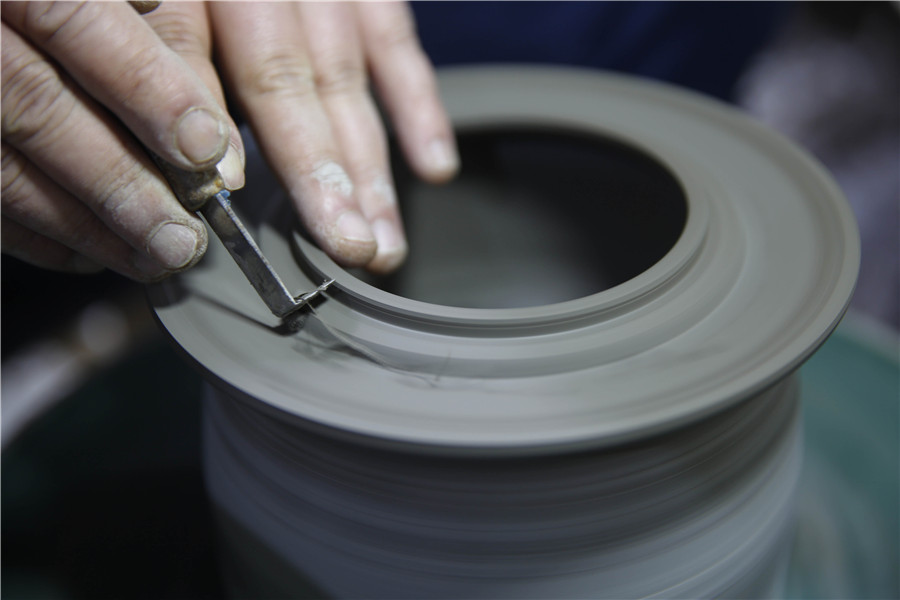
Wang Junzi trims a ceramic body in Qingliangsi village, Baofeng county of central China's Henan Province, on June 3, 2016. (Photo/Xinhua)
Photos
Related Stories
Copyright © 2023 People's Daily Online. All Rights Reserved.






